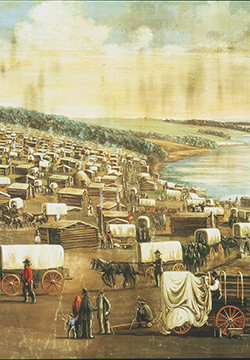July 18, 1837
Bailey v. Smith: B. Graham requested that Lord Sterling secure payment on the Smith and Cowdery note "by security or otherwise." Graham found that the note due on July 15 was protested at Cleveland then returned. Graham ordered the note forwarded to Sterling, requesting Sterling pursue the best course to secure it.
